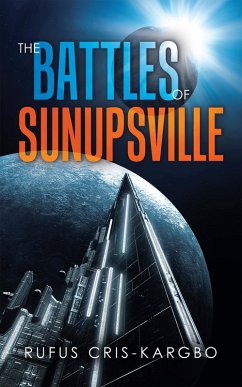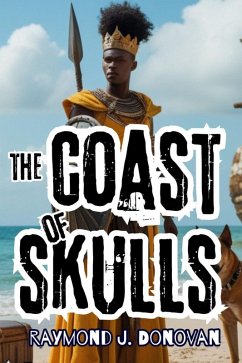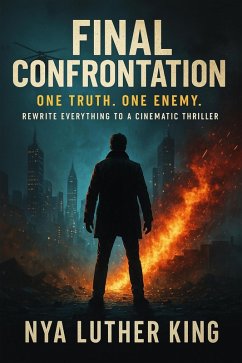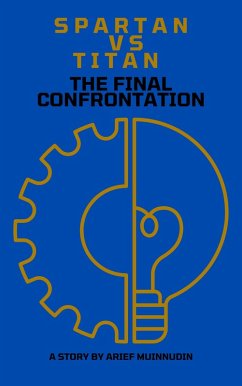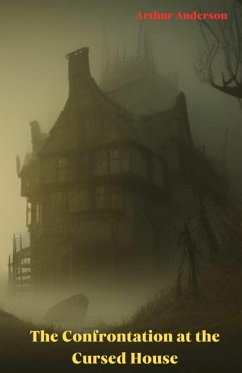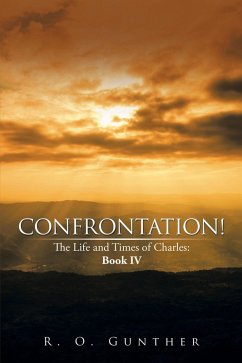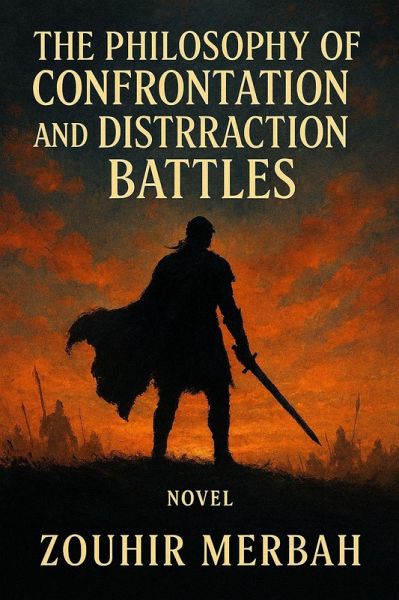
The Philosophy of Confrontation and Distraction Battles (eBook, ePUB)

PAYBACK Punkte
0 °P sammeln!
Elias Thorne is a gifted young architect on the fast track to urban success when his father's death changes everything. His inheritance is not wealth or property, but a single, all-consuming mission: a complete set of blueprints for The Oakhaven Library, a magnificent structure of glass and timber designed to breathe life back into the decaying, forgotten town where his father spent his last days. Driven by a deep sense of duty and haunted by his father's quiet legacy, Elias puts his own promising career on hold to see the project through.The novel is a profound exploration of a subtle philoso...
Elias Thorne is a gifted young architect on the fast track to urban success when his father's death changes everything. His inheritance is not wealth or property, but a single, all-consuming mission: a complete set of blueprints for The Oakhaven Library, a magnificent structure of glass and timber designed to breathe life back into the decaying, forgotten town where his father spent his last days. Driven by a deep sense of duty and haunted by his father's quiet legacy, Elias puts his own promising career on hold to see the project through.
The novel is a profound exploration of a subtle philosophy: the critical distinction between the primary mission and the "distraction battles" that threaten to derail it. As Elias navigates the complex social and political landscape of Oakhaven, he is constantly beset by conflicts that seem urgent and necessary. These battles are seductive, offering the quick, intoxicating thrill of victory. He faces a power-hungry commission chairman who uses petty regulations to assert dominance, a cynical and heartbroken town elder who views the project as an insult to his community's painful past, and most temptingly, the lure of a "golden detour"-a prestigious, high-paying hotel project offered by a former colleague that promises a return to his old life of easy success.
Elias's journey is a masterclass in emotional evolution. Initially driven by pride and a desire to prove his and his father's competence, he slowly learns that the most effective tool is not a sharp retort or a decisive public win, but quiet empathy and unwavering strategic focus. He discovers that some confrontations are won by refusing to engage, that true strength lies in knowing which arguments serve the mission and which are merely traps for the ego. He must learn to listen to the whispers of a community's long-held pain and financial fears before he can ask them to believe in his vision.
This is more than a story about constructing a building; it is about the architecture of the soul. It is a slow-burn, deeply character-driven narrative that delves into the nature of purpose, legacy, and the quiet wisdom required to navigate a world full of noise. Elias must learn that the greatest victory is not found in the side battles he wins, but in the ones he wisely chooses to walk away from, all to protect the one goal that truly matters. With a closed, surprising, and emotionally resonant ending, the novel asks a profound question: In a life defined by conflict, how do we choose the right war to wage?
The novel is a profound exploration of a subtle philosophy: the critical distinction between the primary mission and the "distraction battles" that threaten to derail it. As Elias navigates the complex social and political landscape of Oakhaven, he is constantly beset by conflicts that seem urgent and necessary. These battles are seductive, offering the quick, intoxicating thrill of victory. He faces a power-hungry commission chairman who uses petty regulations to assert dominance, a cynical and heartbroken town elder who views the project as an insult to his community's painful past, and most temptingly, the lure of a "golden detour"-a prestigious, high-paying hotel project offered by a former colleague that promises a return to his old life of easy success.
Elias's journey is a masterclass in emotional evolution. Initially driven by pride and a desire to prove his and his father's competence, he slowly learns that the most effective tool is not a sharp retort or a decisive public win, but quiet empathy and unwavering strategic focus. He discovers that some confrontations are won by refusing to engage, that true strength lies in knowing which arguments serve the mission and which are merely traps for the ego. He must learn to listen to the whispers of a community's long-held pain and financial fears before he can ask them to believe in his vision.
This is more than a story about constructing a building; it is about the architecture of the soul. It is a slow-burn, deeply character-driven narrative that delves into the nature of purpose, legacy, and the quiet wisdom required to navigate a world full of noise. Elias must learn that the greatest victory is not found in the side battles he wins, but in the ones he wisely chooses to walk away from, all to protect the one goal that truly matters. With a closed, surprising, and emotionally resonant ending, the novel asks a profound question: In a life defined by conflict, how do we choose the right war to wage?
Dieser Download kann aus rechtlichen Gründen nur mit Rechnungsadresse in A, B, CY, CZ, D, DK, EW, E, FIN, F, GR, H, IRL, I, LT, L, LR, M, NL, PL, P, R, S, SLO, SK ausgeliefert werden.







